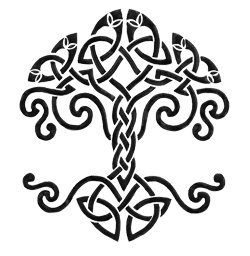During the 1600's and through the 1800's, many cultures followed the custom of naming their children in a specific manner, generation after generation. This was especially true to those people in the British Isles, Scotland, Ireland, England and Wales. This practice remained pretty much in tact as families began emigrating throughout the world, certainly among the Ulster Scots and the early settlers in Colonial America. This is, no doubt, why so many identical or similar names appear generation after generation within the same family. This practice continued, even as middle names became more common, beginning about the early 1800's, but waned somewhat by the middle or latter 1800's as cultures intermixed and traditions diminished. Although still used by some families, naming patterns and traditions seem no longer as widespread, or at least far less so.
The most common 'old' method seems to be as follows:
MALES
Eldest son - named after his paternal grandfather
Second son - after his maternal grandfather
Third son - after his father
Fourth son - after his father's eldest brother
FEMALES
Eldest daughter - after her maternal grandmother
Second daughter - after her paternal grandmother
Third daughter - after her mother
Fourth daughter - after her mother's eldest sister
Sometimes the order is reversed -- the eldest son is named after his maternal grandfather, etc.
In the early American colonies, there were several significant exceptions to these unwritten rules. Some families, ignoring any traditions, used familiar or important names of English origin, or those of Hebrew derivation, or sometimes names intended to have moral significance (i.e., Prudence) were used. The Puritans, often used direct biblical references, some obvious and some more obscure. The Quakers used a different more communal method where a name, often the parents or grandparents name, was carefully selected by the parents, certified by friends, witnessed by neighbors, and then entered in the register of the meeting.
Also common in early America was to name the eldest son after the father. This was to eliminate any ambiguity and ensure that the eldest son inherited, in the event the father died intestate, Primogeniture (the exclusive right of the eldest son to inherit the father's entire estate) being the law in those times.